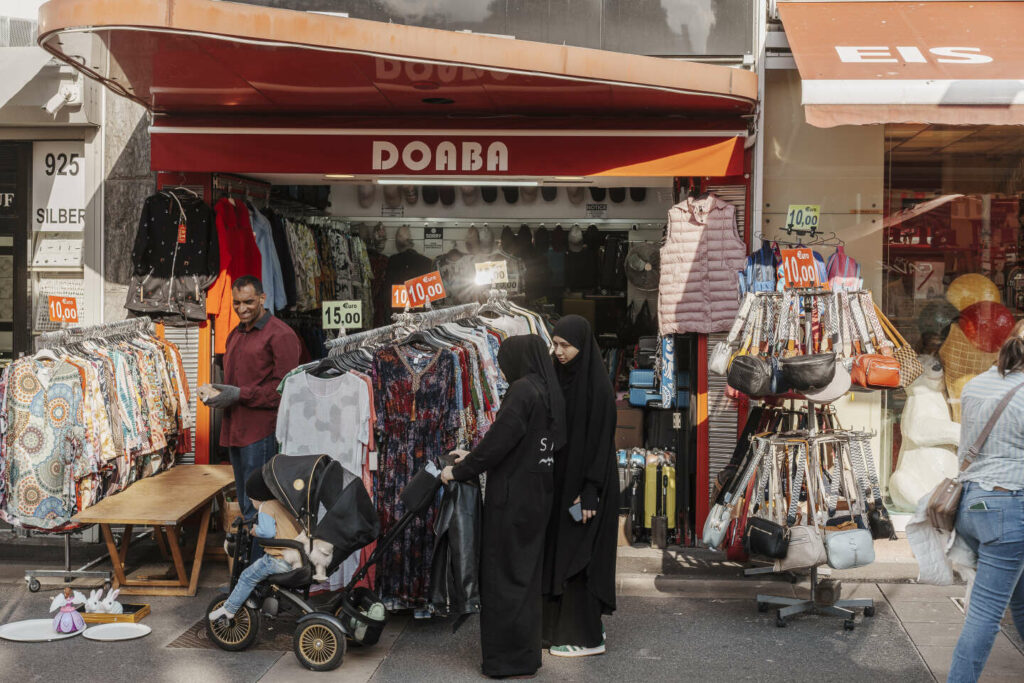Ruth Wodak, a linguist internationally renowned for her analysis of far-right political discourse, was out on Reumannplatz in the heart of Favoriten, Vienna’s most popular and mixed-race district, on September 18. She was campaigning for the Austrian Social Democratic Party (SPÖ). “I told myself that I had to do everything I could to avoid Fortress Austria,” explained the dynamic septuagenarian, referring to the anti-immigrant slogan of the Freedom Party of Austria (FPÖ, far right), which is promising to “stop the right of asylum” and which polls are putting in the lead for the country’s parliamentary elections on Sunday, September 29.
Faced with the halting German of many foreigners, who don’t have the right to vote anyway, and a few men slumped on benches and visibly under the influence of narcotics, the leaflets printed from her own computer by this intellectual figure of the Austrian left aroused little interest. “The most incredible thing is that people with Polish or ex-Yugoslavian immigrant backgrounds have told me that they are good workers and that they don’t want Syrians because they are Muslims,” she lamented, trying nonetheless to highlight the SPÖ’s program, “which promises more money for education and to facilitate the integration” of foreigners.
The scene is typical of the difficulties faced by Austria’s social-democrats, like so many of their European counterparts, in overcoming the migration issue. A twenty-minute walk from Vienna’s main railway station and five metro stops from the iconic Saint Stephen’s Cathedral, Reumannplatz, with its inhabitants from over 100 countries around the world, is anything but a “no-go zone” with its many families strolling around, its large green spaces and its ice cream parlor – the most famous in the Austrian capital.
People from the former communist bloc
Nevertheless, for many Austrian voters, especially in rural areas, the area has become a symbol of the fact that their country has still not come to terms with the migrant crisis of 2015. In the spring, gangs of young people of Syrian and Chechen origin clashed several times at knifepoint, confounding the legendary tranquility of the former Habsburg capital. FPÖ leader Herbert Kickl used these events to denounce the “Islamization we’ve been observing since 2015” and to stir up fears of the “Great Replacement,” a racist conspiracy theory invented by identitarian circles, which says that Muslims will soon replace the “white” Christian population.
Read more Subscribers only In Austria, the far-right leader, Herbert Kickl, is campaigning for ‘remigration’
Although foreigners account for 50% of Favoriten’s population, most of these people come from the former communist countries of Central Europe or the Balkans. In June, however, the FPÖ held a rally in Favoriten to denounce “so-called asylum seekers” from Syria and Afghanistan, and to advocate their “remigration,” back to their countries of origin. This campaign enabled the far-right party to come out on top for the first time in its history in June’s European elections with 25.4% of the vote and has put it at 27% ahead of the legislative elections.
You have 55.08% of this article left to read. The rest is for subscribers only.
Source link : http://www.bing.com/news/apiclick.aspx?ref=FexRss&aid=&tid=66f8a3e7c8ef4f68a0e34cfca50a3a62&url=https%3A%2F%2Fwww.lemonde.fr%2Fen%2Finternational%2Farticle%2F2024%2F09%2F29%2Fin-austria-the-migration-issue-has-dominated-the-general-election-campaign_6727610_4.html&c=8542559688756361483&mkt=de-de
Author :
Publish date : 2024-09-28 16:01:00
Copyright for syndicated content belongs to the linked Source.
